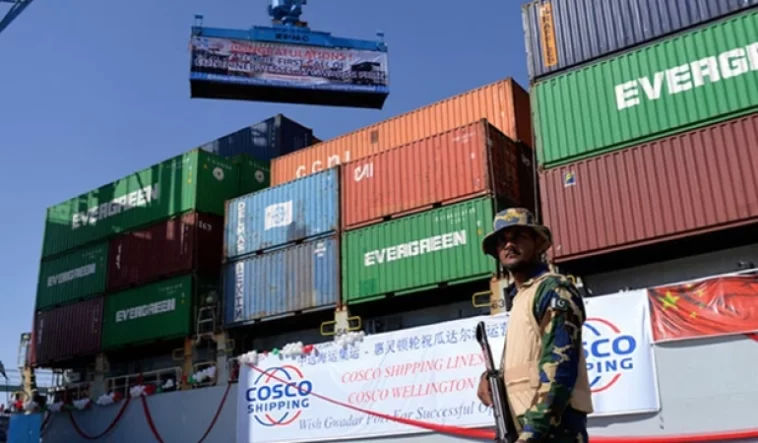Pakistan’s government is being pressured by its business leaders to lift a ban on importing non-essential goods, including manufacturing materials, which are currently being held at Karachi’s main port. As a result of the country’s cash shortages and critically low US dollar reserves, the ban was imposed. Until a bailout agreement with the International Monetary Fund is reached, the government has permitted only the import of essential foods and medications.
The steel, textiles and pharmaceutical industries are facing dire consequences from the ban and thousands of factories have already been forced to close, leading to increased unemployment. There has been a significant shortage of scrap metal in the steel industry, which has resulted in record high prices for steel bars. According to Wajid Bukhari, head of Pakistan’s Large Scale Steel Producers Association, the entire supply chain is at risk of being “jammed.”
According to central bank data, foreign exchange reserves have plummeted to just $2.9 billion, which is not sufficient to cover imports for more than three weeks. As a result, the Constructors Association of Pakistan has echoed the call for the steel and machinery import ban to be lifted, for fear that the construction sector may soon shut down, causing mass unemployment.
Several years of financial mismanagement and political instability have severely impacted Pakistan’s economy, compounded by a global energy crisis and devastating floods that affected a third of the country. Inflation, rising fuel costs, a shortage of raw materials, and a plummeting rupee have added further stress to the manufacturing industries. A delegation of the International Monetary Fund (IMF) recently left Pakistan following unsuccessful urgent talks to revive a loan program, leaving business leaders in a state of uncertainty.
Textile and garment industries, which represent 60% of Pakistan’s exports and employ 35 million people, are in desperate need of raw materials to produce products such as towels, underwear, and linen for major brands around the world. Shahid Sattar, Secretary General of the All Pakistan Textile Association, has prioritized the industry, pointing out that it is the mainstay of the country’s exports and crucial to the recovery of the economy. Because of last summer’s floods, the cotton industry relied heavily on imported raw materials. The textile industry has come to a “grinding halt” with around 30% of mills shutting down operations completely and the rest operating at less than 40% capacity.
As a result of a shortage of key ingredients, 40 pharmaceutical factories are at risk of closing, according to Tauqeer Ul Haq, head of the Pakistan Pharmaceutical Manufacturers Association. The supply-chain crisis is escalating unemployment and fueling poverty, particularly impacting workers in the construction and factory sectors who are paid daily. According to economist Kaiser Bengali, the crisis is also driving inflation and affecting government revenue.
According to Nasir Iqbal, economist at the Pakistan Institute of Development Economics, export bans can never be a sustainable solution. Under-pressure Finance Minister Ishaq Dar stated that businesses must wait for the IMF money to come in before letters of credit will resume for imports. As a result of meeting the bailout conditions, such as raising petrol and energy costs, inflation is expected to increase, but this will clear the way for further financial assistance from friendly nations in the future.
In recent months, factories in Peshawar producing glass, rubber, and chemicals, mostly for the Afghan market, have closed one after another. According to Malik Imran Ishaq, president of the Industrialist Association Peshawar, which represents 2,500 factories, approximately 600 factories have closed and many more are operating at half capacity, leaving the entire business community in serious trouble.


